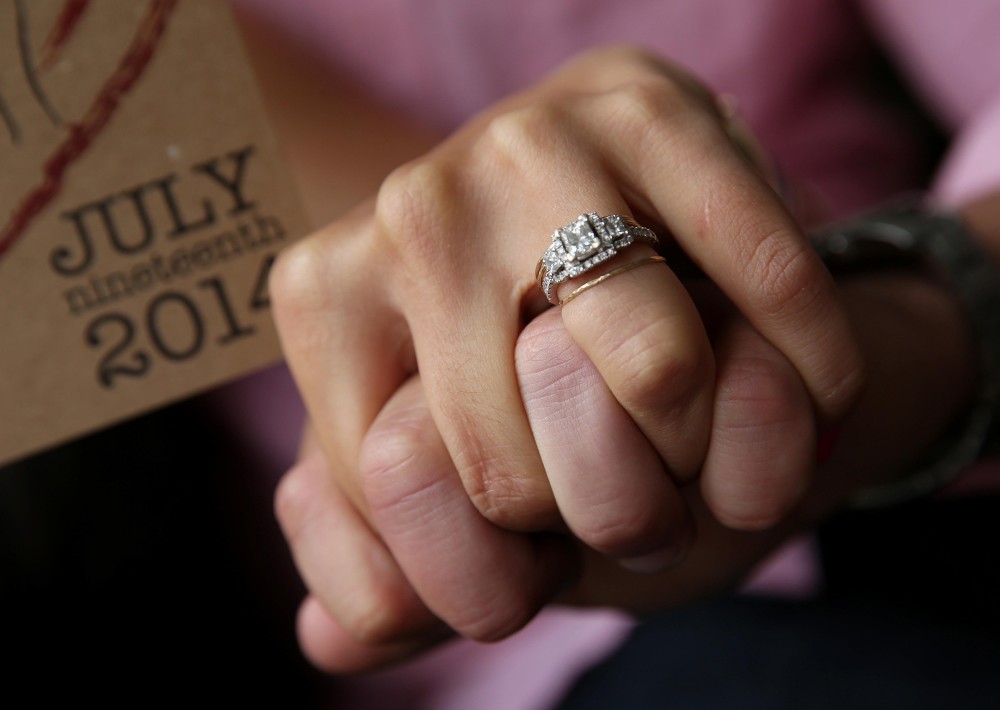By Heidi Stevens
Chicago Tribune.
How’s this for sobering?
“The majority of marriages fail, either ending in divorce and separation or devolving into bitterness and dysfunction,” writes The Atlantic’s Emily Esfahani Smith in a recent essay. “Of all the people who get married, only 3 in 10 remain in healthy, happy marriages.”
In its entirety, Smith’s “Masters of Love” article is less pessimistic, focusing on what sets successful couples apart.
She cites research from social scientists, psychologists and marriage counselors and concludes that, mostly, it comes down to being nice.
“If you look at what drives the deterioration of many relationships, it’s often a breakdown of kindness,” she writes.
This applies to lousy, spirit-breaking times in your marriage. It also applies to the good times.
“How someone responds to a partner’s good news,” she writes, “can have dramatic consequences for the relationship.”
This stopped me cold. Why don’t we hear that more? Why is it so easy to forget to genuinely celebrate each other’s victories, large and small?
I called Don and Carrie Cole, a husband-and-wife couples counselor team trained through the Gottman Institute, the Seattle-based center whose research is cited all over the Atlantic piece.
When you tell your partner you aced an exam or landed a job or met a nerve-wracking deadline, how he or she responds lifts you up or cuts you to the quick, says Don Cole.
“Successful couples are tuned in and know what’s going on inside their partner’s head and heart,” he says. “When his wife comes home and says, ‘I got a good grade on my paper,’ the husband knows what a big deal that is. He doesn’t stare at his phone and say, ‘Oh, that’s nice.'”
The Atlantic piece cites a 2006 study that placed responses to good news in four categories: passive destructive, active destructive, passive constructive and active constructive.
Say a woman just got into medical school, Smith writes. Her partner can reply with one of the following:
“You wouldn’t believe the great news I got yesterday! I won a free T-shirt!” (Passive destructive)
“That’s great, babe,” as he continues texting. (Passive constructive)
“Are you sure you can handle all the studying? And what about the cost? Med school is so expensive!” (Active destructive)
“That’s great! Congratulations! When did you find out? Did they call you? What classes will you take first semester?” (Active constructive)
The last one, obviously, puts the others to shame.
“‘Oh, that’s nice’ isn’t necessarily unkind,” Carrie Cole says. “But it’s not what your partner needs at that moment.”
She needs a reminder that her big deals are your big deals, that her happiness is your happiness. That you believe in her.
“We think about empathy when things are not going well, ‘Oh, you must be so sad,'” Carrie Cole says. “But empathy goes in the other direction, when you validate how good something must feel for your partner.”
It doesn’t sound that hard. But all sort of obstacles pop up, egos, daily distractions, the way we were socialized, Don Cole says.
“We tell a joke at our workshop about the farmer who loved his wife so much he almost told her,” he says with a laugh. “There’s the idea in some cultures that praising and celebrating and rejoicing encourages a big head. There’s almost a guilt associated with it.”
I need a reminder to dispense with that style. I’m pretty adept at praising (overpraising, probably) my kids.
They rarely so much as breathe without me cheering from the sidelines. “‘Good climbing, Brandon!’ was our hue and cry,” Jamie Lee Curtis once famously opined about modern parents. Guilty as charged.
It’s harder with grown-ups, my husband, family members, friends.
Maybe it’s competitiveness or laziness or busy-ness or something in between, but it feels more natural to rush in when the people I love are struggling.
But when something goes right, goes great, in fact, I too often leave the celebrating to them.
It’s a little passive destructive. Or maybe it’s active destructive. Regardless, it’s destructive.
“Successful couples create rituals to talk about the stressful parts of the day and the victories,” Don Cole says. “After dinner with a cup of coffee or a glass of wine. A daily chance to say, ‘That’s really cool!'”
Make it a habit, Carrie Cole suggests. “It’s a chance to say, ‘I’m so happy that you’re happy and that I have you in my life.'”
Assignment accepted. Actively, constructively accepted.














































































































































































































































































































































































